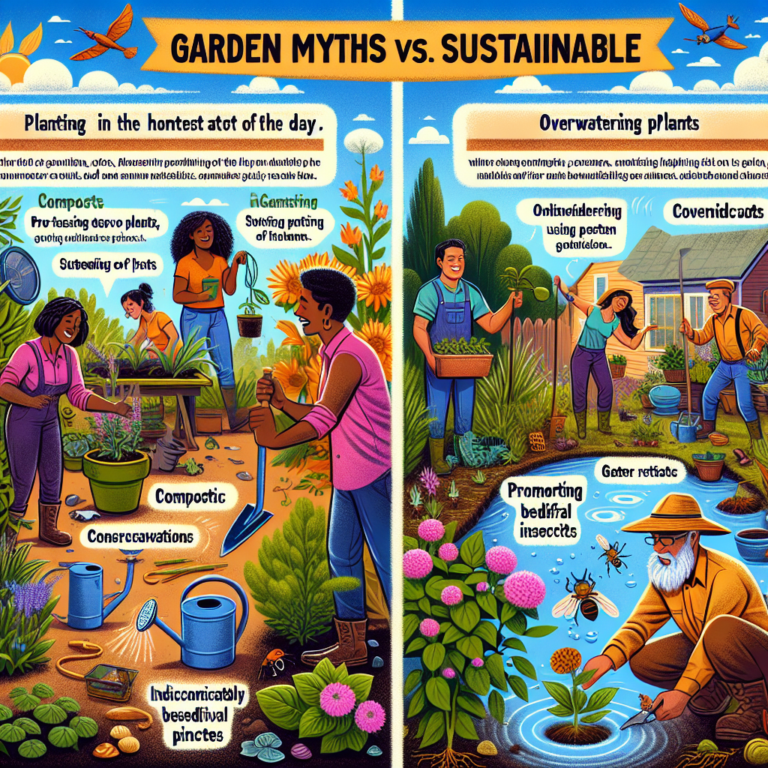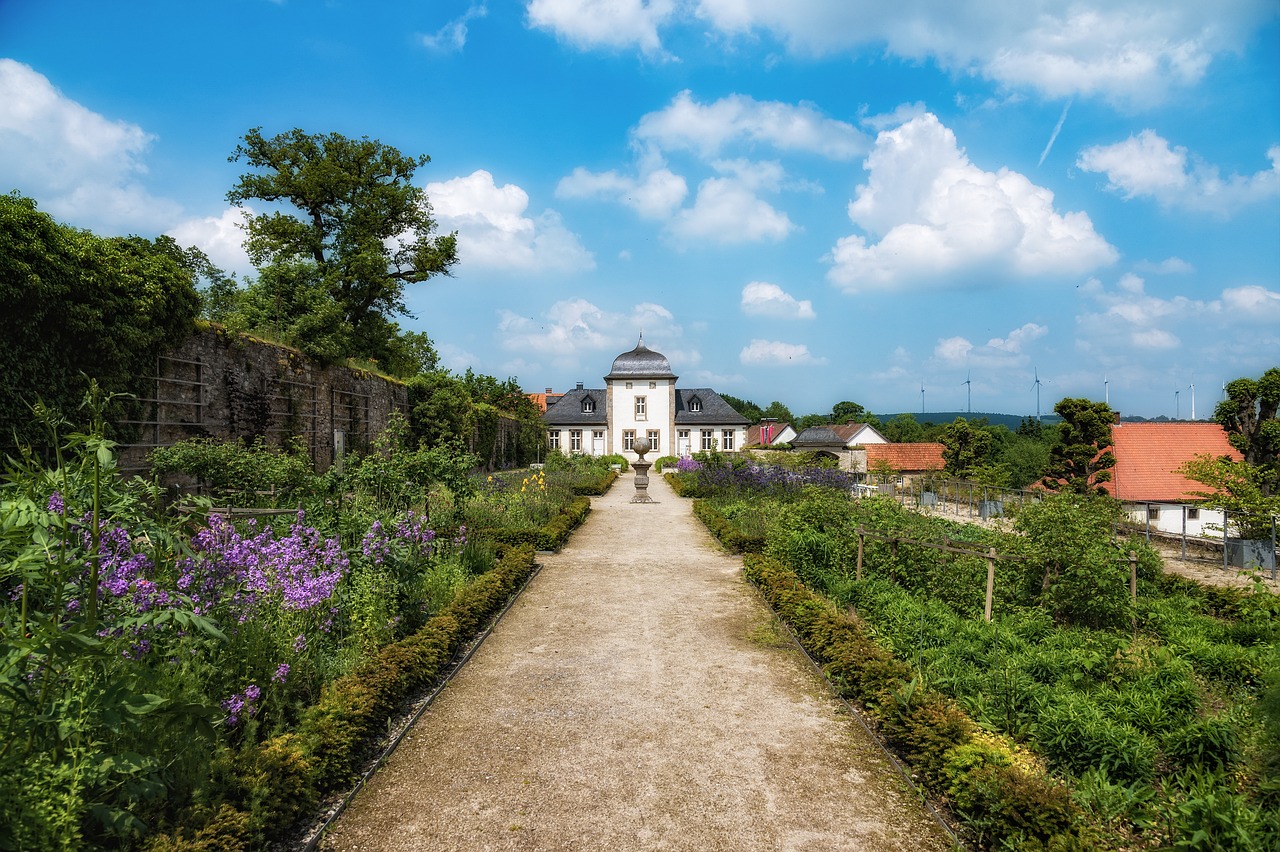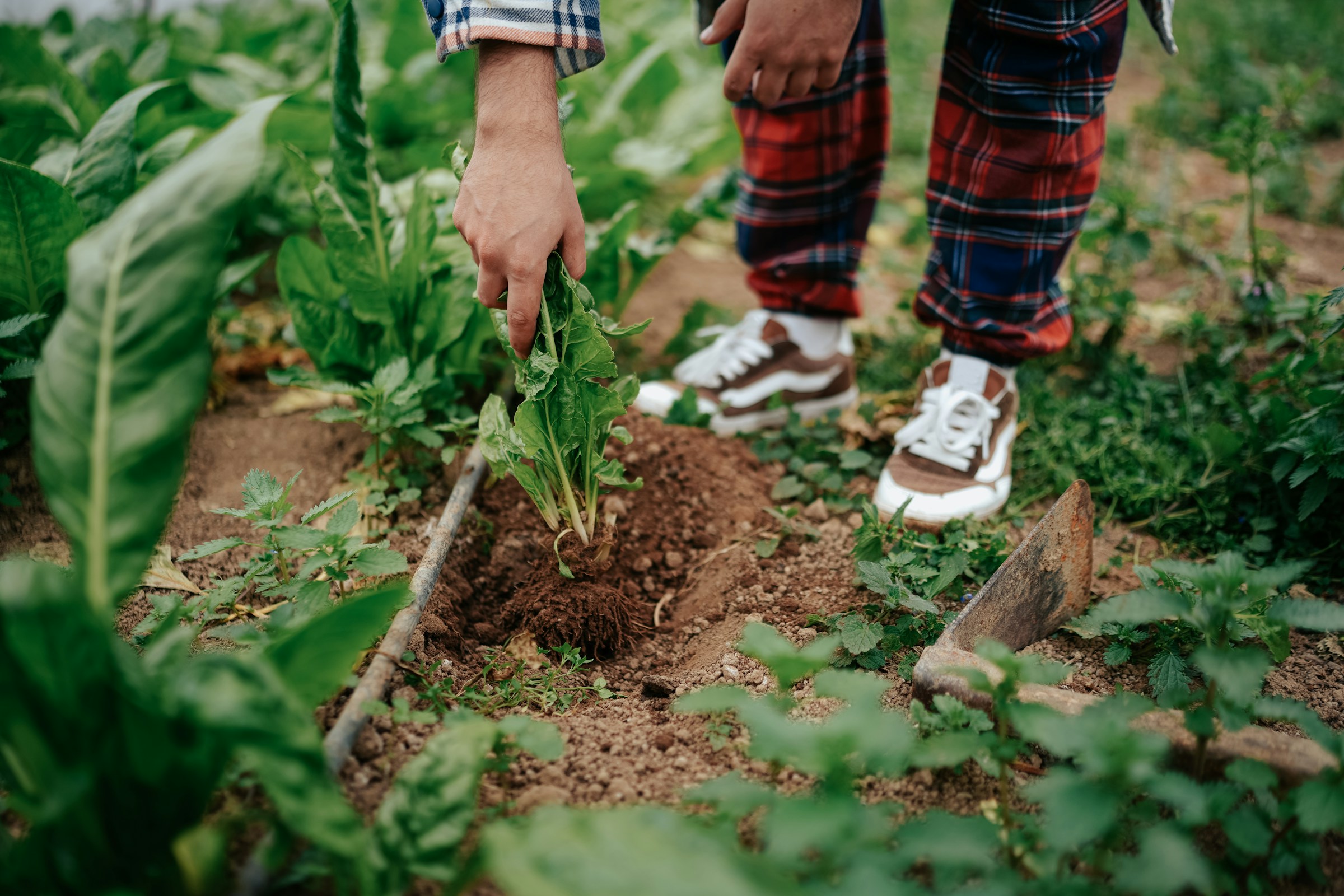Gardening is a pastime that has stood the test of time, providing joy, tranquility, and even sustenance to those who delve into the soil. However, not all gardening trends are created equal. Some popular garden fads and myths may be more style than substance, leading to wasted time and resources for gardeners. In this article, we’ll take a closer look at some of these garden myths, why they’ve gained traction, and what you should consider instead for a thriving and environmentally friendly garden.
The Truth Behind Overrated Garden Fads
Gardening trends come and go, but some have managed to sow seeds of misinformation among even the most seasoned gardeners. Let’s dispel some of these misconceptions and focus on what truly benefits your garden.
Myth 1: More Water Equals Healthier Plants
The belief that giving plants plenty of water guarantees their health is a common misconception. Overwatering can lead to root rot, fungus, and a host of other issues. Instead, it’s crucial to understand the water needs of each plant species and adjust your watering schedule accordingly. Some plants thrive with minimal water, promoting deeper root growth and resilience, while others may require consistent moisture.
Myth 2: The More Fertilizer, The Better
While fertilizer can be a vital component of garden health, over-fertilization is a real problem. Excess nutrients can burn plant roots and even leach into waterways, causing environmental harm. It’s important to follow the recommended amounts on fertilizer packaging or to use organic compost to provide a slow-release, balanced diet for your plants.
Myth 3: Pest-Free Gardens Are Ideal
A garden without pests may sound ideal, but it’s not always beneficial or achievable. In fact, some insects are necessary for pollination and pest control. Instead of aiming for a pest-free garden, focus on creating a balanced ecosystem where beneficial insects can thrive and keep harmful pests in check.
Questionable Outdoor Decor Trends
While personal taste in garden aesthetics varies widely, some outdoor decor trends can detract from the natural beauty of your garden. Let’s examine a few questionable choices.
Over-the-Top Ornamentation
Gardens filled with an excess of ornaments, from gnomes to wind spinners, can become visually cluttered. While these items can add character, it’s essential to strike a balance. Choose a few statement pieces that complement your garden’s theme and allow the plants to be the stars of the show.
Excessive Lighting
Outdoor lighting can enhance the ambiance of your garden at night, but too much lighting can disrupt local wildlife and contribute to light pollution. Consider using softer, solar-powered lights and placing them strategically to highlight pathways or specific plants without overpowering the space.
Synthetic Lawn Overuse
While synthetic lawns are marketed as low-maintenance and evergreen, they come with environmental drawbacks. They don’t support wildlife, can become extremely hot, and contribute to plastic pollution. Instead, consider low-maintenance ground covers that provide greenery and benefit the ecosystem.
Overhyped Garden Trends to Avoid
In the age of social media, certain garden trends can explode in popularity, but they may not be practical or sustainable for every gardener. Here are some fads you might want to think twice about before adopting.
Vertical Gardens Everywhere
The vertical garden trend has taken off, promising to save space and create living walls of green. However, they can be challenging to maintain, with issues like uneven water distribution and the need for frequent pruning. If you’re tight on space, consider smaller-scale vertical options like trellises for climbing plants, which are easier to manage.
Exotic Plant Obsession
Exotic and rare plants can be intriguing, but they often require specialized care that may not be sustainable in your local climate. Native plants, on the other hand, are adapted to your region’s conditions and can provide habitat for local wildlife.
Pallet Gardens
Pallet gardens have become a popular DIY project, but they might not be the best choice for your plants. Wood pallets can contain harmful chemicals, and they may not provide enough soil depth for healthy root growth. Consider raised beds or containers made from safer materials for your gardening projects.
Garden Practices That Stand the Test of Time
Let’s focus on tried-and-true garden practices that are both effective and environmentally friendly.
Crop Rotation and Companion Planting
Rotating crops and planting companions can improve soil health, reduce pest issues, and enhance plant growth. These techniques have been used for centuries and remain essential components of a successful garden.
Mulching
Mulching helps retain soil moisture, regulate temperature, and suppress weeds. Organic mulches like straw or wood chips also enrich the soil as they decompose. It’s a simple and effective way to support your garden’s ecosystem.
Water Conservation Techniques
Incorporating water conservation methods such as drip irrigation or rain barrels can save water and ensure your plants receive the moisture they need without waste.
Embracing Sustainable Garden Trends
As gardeners become more environmentally conscious, sustainable gardening practices are taking root. Here are a few trends worth embracing.
Pollinator-Friendly Gardens
Designing a garden that attracts and supports pollinators like bees, butterflies, and birds is not only beneficial for the environment, but it also ensures the health of your plants.
Organic and Natural Pest Control
Using organic pest control methods, such as introducing beneficial insects or using plant-based insecticides, can help manage pests without harmful chemicals.
Edible Landscaping
Incorporating edible plants into your garden’s design adds beauty and functionality, allowing you to enjoy fresh produce right from your backyard.
Conclusion
Gardening is a rewarding activity that connects us to the earth and provides a sense of accomplishment. By debunking popular garden fads and myths, we can focus on sustainable practices that lead to a healthy and vibrant garden. Remember, the best garden trends are those that promote a balanced ecosystem, conserve resources, and create a space that is both beautiful and beneficial for all its inhabitants.
By questioning the latest garden trends and sticking to principles that have stood the test of time, you can ensure that your garden not only looks great but is also a haven for you, the environment, and the local wildlife. Happy gardening!







